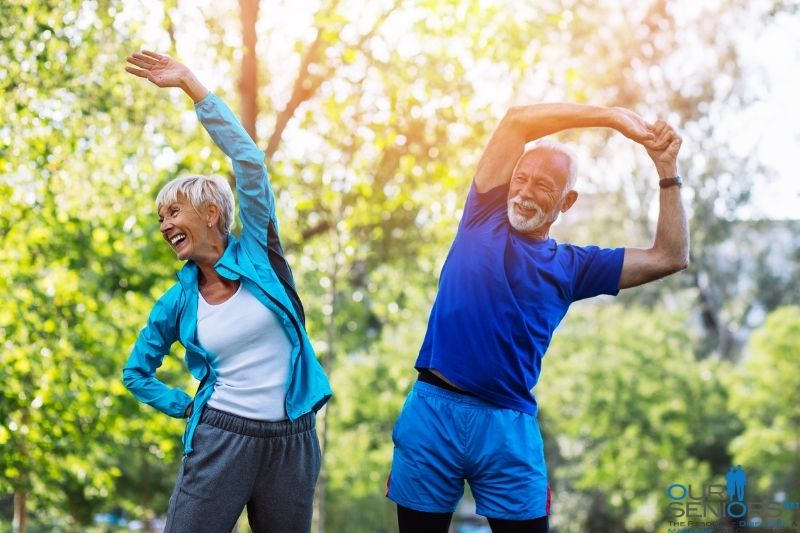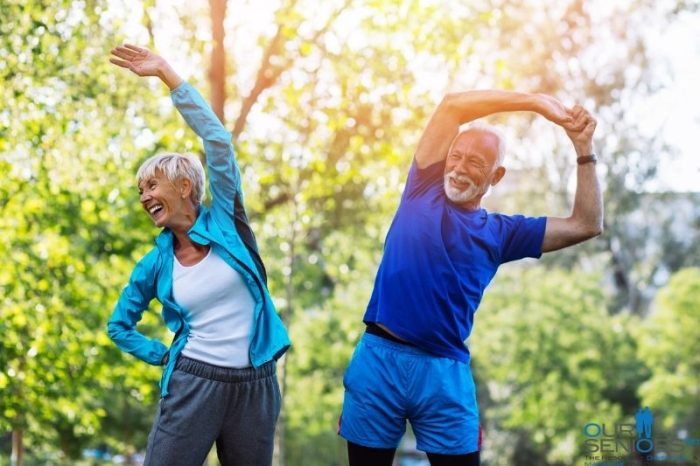
Throughout most of 2020 and 2021, we have been told by federal and state officials that quarantine is one of the best ways to help eradicate Covid-19 and maintain the safety of oneself and others. Yet, the impact quarantine orders have had a major impact on the lives of millions, especially seniors. The challenges of isolation and the absence of social interaction have affected mental health in ways that most seniors were unprepared for. Information we received from the internet, television, radio and newspapers left many people confused and uncertain, leading to overwhelming levels of stress.
Social distancing has made a lot of seniors feel isolated, frustrated, and depressed. All these reactions can increase anxiety and stress which can have a negative toll on mental awareness. The good news is that we are heading toward the end of quarantine orders. The following are four great ideas for boosting mental awareness as we transition out of quarantine and into normalcy:
Take Care of Your Body
Sliding into a care routine focusing on your body is a great way to boost your mental awareness after Covid-19. You should be eating healthy well-balanced meals that replenish important nutrients you may have lost in the last year and a half. Quarantine may have led to changes in appetite, energy, and interests, so you must focus on a healthy diet to get you back into a groove. You should also look to get back to safe routines that keep you active and promote better sleep-wake patterns to ensure you get plenty of rest while ensuring you get the right amount of exercise to keep your body working to its highest potential.
Connect with Others
You should connect with friends and family as much as possible. There are several ways you can boost your mental health by communicating with loved ones. If it is safe to visit friends and family, do so as long as you are in an environment where you aren’t putting yourself or others at risk. You should also make a call, send an email, or have a face-to-face chat to check up on others. These activities can greatly relieve stress and improve your mood. It can also help others cope with feelings of isolation by letting them know you have a shared experience and understand what they might be going through.
Enjoy Physical Activities
Partaking in physical activities is a great way to improve mental awareness in people of all ages. Getting outside to enjoy the outdoors or signing up for an exercise class can help you transition safely from quarantine to a post-Covid 19 era. Just be sure you maintain social distancing and mask-wearing recommendations and regulations. Consider hiking, swimming, tennis, and other activities where you can stay at least 6 feet apart while reaping all the benefits of getting active and getting back into shape.
Take Some Time Off
Finally, how about taking some alone time to unwind. Quarantine has been stressful on many seniors and isolation has played a role in worsening health problems and mental health conditions in many. But it doesn’t mean you can’t recharge by doing fun stuff like gardening, reading, meditating, or finding a new hobby. All these activities, as well as dozens more, can be in the comfort of your home and can work wonders on improving your peace of mind. Even though it may seem counterintuitive to spend some “me time” after a year and a half of quarantine, you’d be surprised how removing yourself from the uncertainties that have surrounded you in that time can be a blessing to your mental health and personal growth.
When In Doubt, Stay Safe and Indoors
Vaccination can keep you safe from the worst effects of Covid-19, but those who have not been vaccinated around you are still at risk. We’ve provided several ideas for boosting mental awareness for yourself and others around you, but you should still be vigilant about those that have not been vaccinated. It is certainly a private and personal matter, but if you have any doubt about the vaccination status of people around you, the best route is to take the safe route.
You can stay indoors and help boost your mental awareness by inviting people you know for certain who are fully vaccinated. This allows you to transition toward normalcy without putting yourself or others at risk. Remember, that even though you have been fully vaccinated you may still carry the virus and be asymptomatic. This means that you can transmit the virus to others who are at risk because they have chosen to avoid vaccination. Your mental awareness is an important concern, but we encourage you to follow one simple rule: when in doubt, stay safe and indoors.

